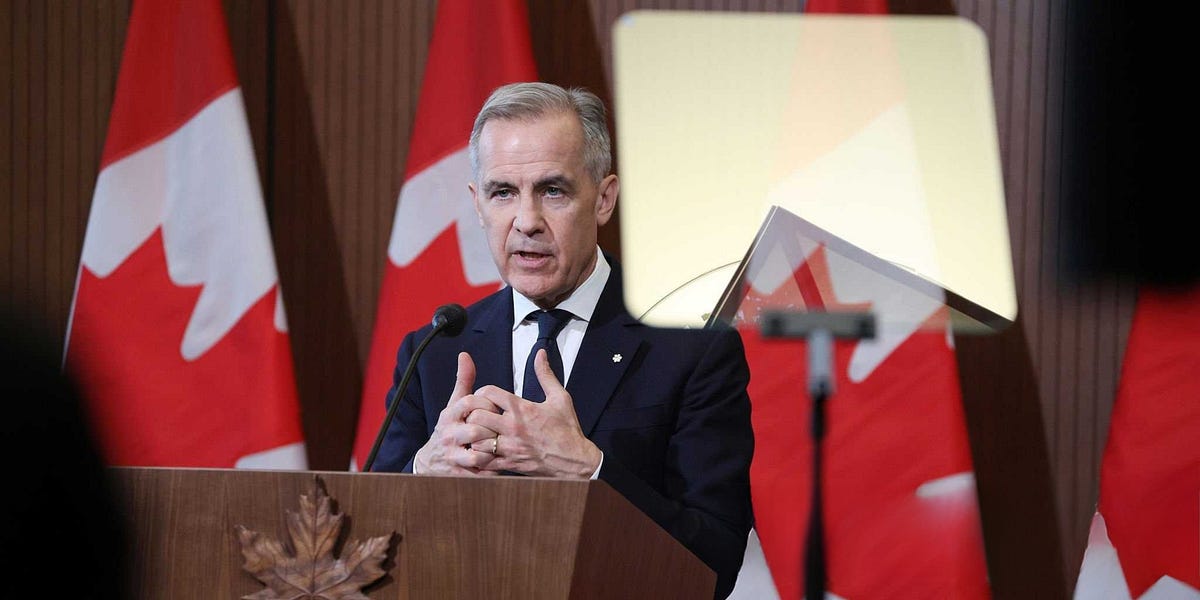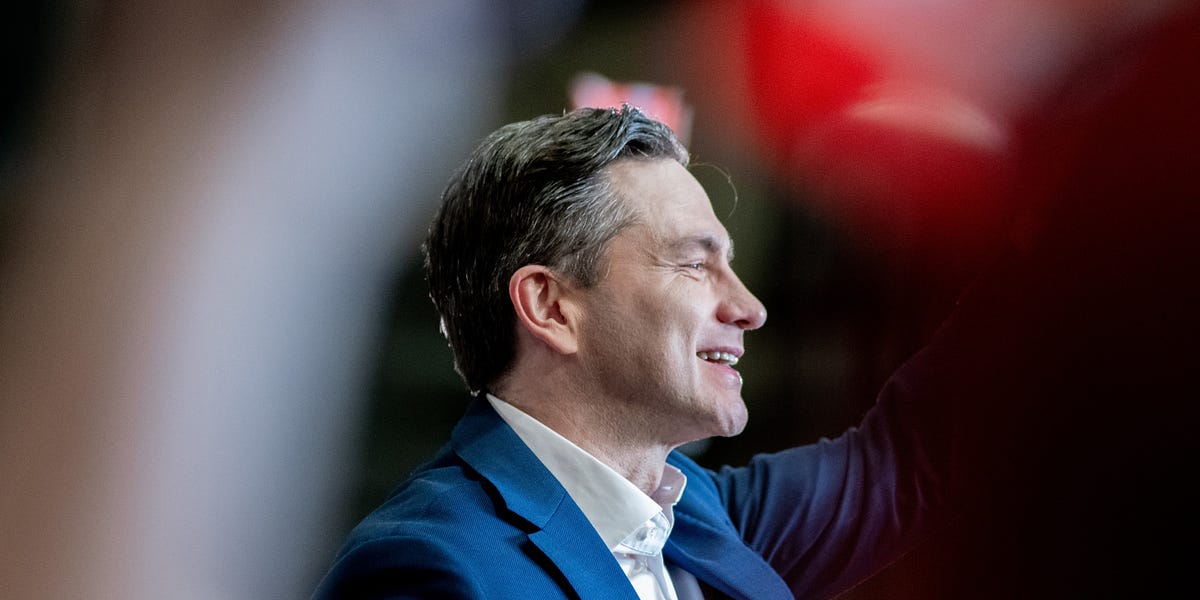It was necessary for the CCP to sabotage O’Toole’s leadership. Unlike Trudeau as well as previous CPC leaders, O’Toole seemed to have a greater vision of Canada as a truly independent country. I’m confident he would have stood up to China and its meddling in our affairs and built up our defence capabilities.So, both the CPC and LPC are being influenced by the CCP?
You are using an out of date browser. It may not display this or other websites correctly.
You should upgrade or use an alternative browser.
You should upgrade or use an alternative browser.
Trust in our Institutions
- Thread starter FSTO
- Start date
OldSolduer
Army.ca Relic
- Reaction score
- 21,341
- Points
- 1,260
I looked at that. This has happened in Manitoba as well.No sure if any of our readers reside in Pickering, ON. They may, or may not, find this of interest.
In today's news,
Pickering city council moving meetings online due to threats, mayor says
FSTO
Army.ca Fixture
- Reaction score
- 7,207
- Points
- 1,210
Gotta cover all the bases right?So, both the CPC and LPC are being influenced by the CCP?
OldSolduer
Army.ca Relic
- Reaction score
- 21,341
- Points
- 1,260
Why not? Clinically speaking it’s a good ideaSo, both the CPC and LPC are being influenced by the CCP?
- Reaction score
- 7,546
- Points
- 1,360
If one takes a truly long term view, those are the two “usual suspect” parties that tend to gain power inSo, both the CPC and LPC are being influenced by the CCP?
Canada, so why not both? Also, if part of the play is just to stir the pot, playing both sides off of each other fits, too.
- Reaction score
- 2,125
- Points
- 1,260
I looked at that. This has happened in Manitoba as well.
The Federation of Canadian Municipalities (FCM) passed a motion asking for federal assistance to protect municipal politicians.
Global News
5 Jan., 2025
How RCMP is responding to ‘unprecedented’ threats against MPs, officials

How RCMP is responding to ‘unprecedented’ threats against MPs, officials - National | Globalnews.ca
The head of the RCMP unit in charge of protecting politicians says the force is ready for a looming federal election but that threats and requests for protection are increasing.
- Reaction score
- 6,381
- Points
- 1,260
A two part essay by Paul Wells on what’s wrong and what needs fixing in Politics in Ottawa. A must read for anyone interested in the Ottawa sausage and why things are so dysfunctional, regardless who the government is.

 paulwells.substack.com
paulwells.substack.com

 paulwells.substack.com
paulwells.substack.com

What an election won't fix
Part I: Let's keep being citizens the day after the election, too

The leader in your mirror
Part 2: For a return of responsibility to our public life
- Reaction score
- 6,381
- Points
- 1,260
As good a place as any. Mods, feel free to move a more appropriate thread.
Andrew Coyne is coming out with a book on Canada’s democratic deficiencies.
Unfortunately, it’s behind a paywall.

 www.theglobeandmail.com
www.theglobeandmail.com
Andrew Coyne is coming out with a book on Canada’s democratic deficiencies.
Unfortunately, it’s behind a paywall.

Opinion: Canada has the form of democracy, but not the substance
Our parliamentary system is in a state of disrepair so advanced that it has lost much of its relevance
Put simply, we do not live in the system we think we do. We have the form of a democracy but not the substance; the rituals but not the reality. Because we preserve the forms and rituals, people find it hard to accept how far the substance has been eaten away. But at some point the facts become unanswerable. Far from a democratic example to the world, our parliamentary system is in a state of advanced disrepair – so advanced it is debatable whether it should still be called a democracy.
The plain truth is that none of the institutions of our democracy work as intended, or as we imagine they do, or as they used to, or as they do elsewhere. Some are best described as having ceased to work at all. The rot has set in at every level, from the corrupt and chaotic process by which the parties choose their candidates and leaders, to the sordid fraternity hazings that are modern election campaigns, to the random distortions in representation imposed by our electoral system, to the many dysfunctions of our increasingly irrelevant House of Commons, to the almost total concentration of power in the office of the prime minister. While any one of these on its own might not trouble us unduly, their accumulated weight should.
The effect has been to invert all of the institutional relationships characteristic of a properly functioning parliamentary democracy. The government does not answer to the Commons so much as the Commons answers to the government; party leaders are not accountable to the members of Parliament in their caucus, but rather caucus is accountable to the leader; the prime minister is no longer a member of Cabinet so much as Cabinet has become an extension of the prime minister. And so on
- Reaction score
- 8,776
- Points
- 1,160
Lots of big business and the like, donate to both parties. Hedging their bets. However, one side or the other, usually receives a larger portion. Likely dependant on their chances of forming government.
- Reaction score
- 8,776
- Points
- 1,160
What did she say?

 www.facebook.com
www.facebook.com

284K views · 1K reactions | She seems so happy about it. | Awakening Canada
She seems so happy about it..
 www.facebook.com
www.facebook.com
- Reaction score
- 8,776
- Points
- 1,160
Thanks. Not doing french, I thought she said "and Canada poor.""Un Canada fort" in bad french
MilEME09
Army.ca Fixture
- Reaction score
- 7,017
- Points
- 1,210
Id agree, and as much as i will take flak for this, i do firmly believe a bill should be passed so all future party leaders must apply for a security clearance within 30 days of taking office. Regardless of party, we need redundancy beyond ethics disclosures to ensure our leaders are free from foreign influence. Tightening lobbying rules, and tighter rules over foreign funding and control of our media as well. Then to top it off, an actual enforceable code of conduct for MP's both inside and outside the house, with penalties for deliberately pushing false information.If there is one thing I’m disappointed with Carney, although not surprised, would be that nothing has been done on foreign influence campaigns here. But if the Tories won’t take it seriously, why would the government be incentivized in taking it seriously?
- Reaction score
- 9,392
- Points
- 1,140
Who determines what is false?with penalties for deliberately pushing false information.
As soon as you start enforcing this sort of thing in politics, it will be turned into a weapon to silence opposition.
Eg. "Mr. Speaker, will the Prime Minister explain where the missing $40M dollars has gone?"
"Mr. Speaker, would the Honourable member from (somewhere rural, or out west) care to withdraw their false allegation, lest they be seen as breeching the code of conduct for uttering false statements?"
- Reaction score
- 7,546
- Points
- 1,360
Or a weapon to ensure the REAL truth gets out, depending on whether you support the party wielding the sword at the moment.Who determines what is false?
As soon as you start enforcing this sort of thing in politics, it will be turned into a weapon to silence opposition.
MilEME09
Army.ca Fixture
- Reaction score
- 7,017
- Points
- 1,210
There's a vast difference between allegations, and deliberately lying. Nor is asking a question spreading false information. However say example during the election debate Pierre Poilievre stated when he was housing minister 200k affordable units were built. When in reality it was about 4k. In the 2021 leaders debate said the government wasn't taking first nations children to court, they were. In cases where its black and white verifiable that someone is lying, they should face sanctions. Plenty of examples even today of politicians spreading false information about vaccines as well that harms public health.Who determines what is false?
As soon as you start enforcing this sort of thing in politics, it will be turned into a weapon to silence opposition.
Eg. "Mr. Speaker, will the Prime Minister explain where the missing $40M dollars has gone?"
"Mr. Speaker, would the Honourable member from (somewhere rural, or out west) care to withdraw their false allegation, lest they be seen as breeching the code of conduct for uttering false statements?"
Here's an example from the UK where Wales wants to do just this very idea

Wales wants to punish lying politicians – how would it work?
Politicians in Wales who deliberately mislead the public could face suspension or even recall under proposals aimed at restoring trust in politics.
 theconversation.com
theconversation.com
Foreign influence or foreign interference? The distinction between legality and illegality is general whether things are overt and acknowledged (overt acts by diplomats, trade reps, lobbyists etc), versus acts done covertly and clandestinely and contrary our own security interests. That’s what last summer’s legislation creating new foreign interference offences and creating the laws for a foreign agent registry established.If there is one thing I’m disappointed with Carney, although not surprised, would be that nothing has been done on foreign influence campaigns here. But if the Tories won’t take it seriously, why would the government be incentivized in taking it seriously?
We’ve been taking about it in the Foreign Interference thread. There was a recent announcement that the Foreign Agents Registry will be up and running this fall and the person in charge of same named.
- Reaction score
- 7,546
- Points
- 1,360
Depends on the context and how it's asked.... Nor is asking a question spreading false information.
Has Bloggins stopped beating his wife?
Did Bloggins ever get those pedophilia/child pornography charges cleared?
How many of these kind of questions have we all seen on memes/clickbait on the socials?
How many of those would be defended by "hey, we offered the best information we had and advice received at the moment and judged/made decisions accordingly"?... Plenty of examples even today of politicians spreading false information about vaccines as well that harms public health ...
And how many team supporters would be OK with their team saying that, and how many team haters would be screaming bloody murder if the another team said that?
Thanks for sharing that. Looks like the proponents would like to treat it like conflict of interest rules: call people out, but not criminally.Here's an example from the UK where Wales wants to do just this very idea

Wales wants to punish lying politicians – how would it work?
Politicians in Wales who deliberately mislead the public could face suspension or even recall under proposals aimed at restoring trust in politics.theconversation.com
Even CSE in the attached handout on dis-mis-information shows there's levels of "correct" ...... In cases where its black and white verifiable that someone is lying, they should face sanctions ...
How many political statements from ANY party fulfills the big three bits in yellow of "valid information"? Is that "truth"? How much "political truth" is more "inaccurate"?Types of information
- Valid information means that it is factually correct, is based on data that can be confirmed, and isn’t misleading in any way.
- Inaccurate information is either incomplete or manipulated in a way that portrays a false narrative.
- False information is incorrect and there is data that disproves it.
- Unsustainable information can neither be confirmed nor disproved based on the available data.
Attachments
daftandbarmy
Army.ca Fossil
- Reaction score
- 43,840
- Points
- 1,160
Edleman Trust Barometer 2025
Canadian businesses, congratulations! Business is the #1 trusted institution, and only business is seen as competent and ethical.
Government? Not so much...
https://www.edelman.ca/sites/g/file...lman Trust Barometer_Canada Report_MASTER.pdf
Canadian businesses, congratulations! Business is the #1 trusted institution, and only business is seen as competent and ethical.
Government? Not so much...
https://www.edelman.ca/sites/g/file...lman Trust Barometer_Canada Report_MASTER.pdf
Similar threads
- Replies
- 3
- Views
- 4K
- Replies
- 11
- Views
- 7K
- Replies
- 742
- Views
- 150K



